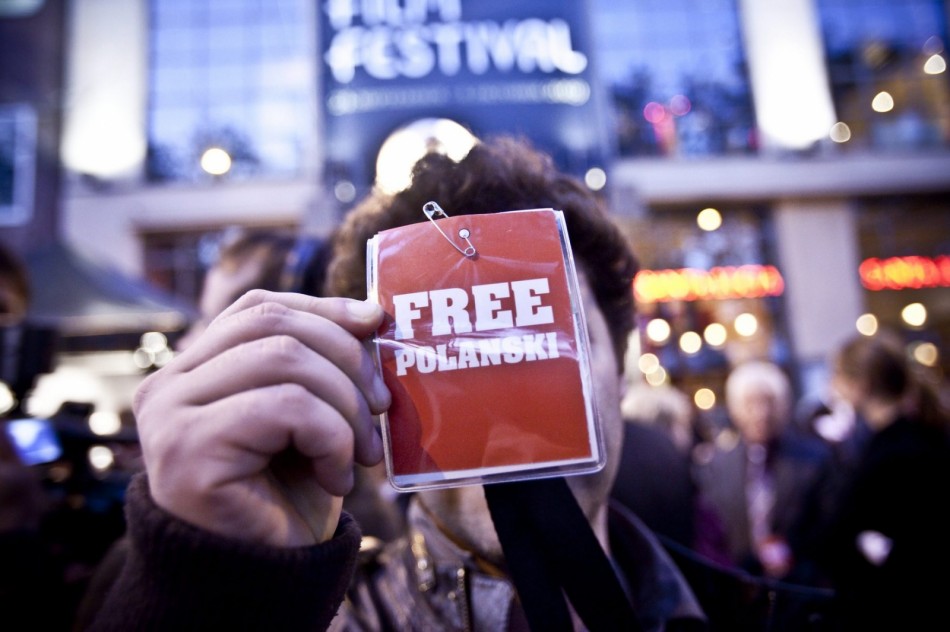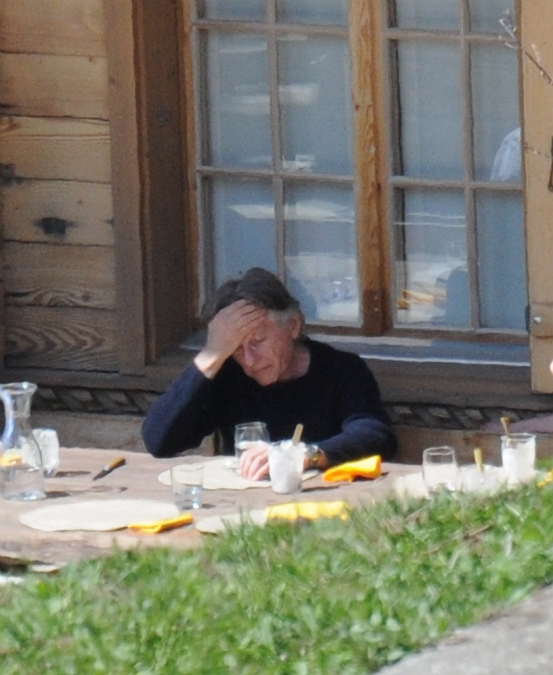
The Voice of Some People
Roman’s Holiday — and Priests Forever
He’s back. Roman Polanski, the fugitive from US law enforcement, is back on the screen in Marina Zenovich’s Roman Polanski: Odd Man Out, the sequel to Zenovich’s documentary about the filmmaker/ celeb-defendant, Roman Polanski: Wanted and Desired, that made waves at Sundance and on HBO in 2008.

At the time, the Oldest Prisoner in Switzerland — Roman in Chains?
I was surprised to hear from film critics that they considered this an overcooked subject. I view it as anything but that. The challenge for a filmmaker is to take a step ahead of the unfolding story – hard in any documentary that deals with ongoing events – and to find answers that all the parties have been hiding for all these years.
Zenovich takes us to the Zurich Film Festival in September 2009, which seemed like a safe place to visit until it became anything but that for Polanski. After the kind of sanctimony about his arrest that you seem to see at too many film festivals, eventually we see him sprung for house arrest and then simply sprung.
Zenovich raises the question of whether US leniency toward Switzerland on the UBS AG case, involving thousands of Americans avoiding tax through Swiss bank accounts, had something to do with Swiss cooperation on pursuing Polanski. She also wonders whether Steve Cooley, the LA District Attorney seeking to run for Attorney General, was looking for a boost to his campaign by requesting Polanski’s extradition. Neither crucial question gets enough of an answer, but raising them will get us closer to answers. No word on when it will get a broader showing. So far, it’s not on HBO like the last one.
On the subject of charges of sexual abuse, veteran documentarian Alex Gibney has weighed in with Mea Maxima Culpa: Silence in the House of God, a inquiry into the abuse of children by priests that enters the story by way of a cover-up of predation by a priest in charge of a school for deaf children outside Milwaukee. Just imagine children who couldn’t speak to their uneducated Catholic parents (who couldn’t sign) and were left to be raped with impunity. Watching them tell their stories and confront the priest decades later is heartbreaking. Gibney has done a great service once again, as has the dogged New York Times reporter Laurie Goodstein, who co-produced. The film will be released theatrically by HBO in November.
Here is a report which, based on the trailer, calls the doc an anti-Catholic smear.
Mea Maxima Culpa (a line taken from the Confiteor and translated as “through my most grievous fault”) presents such a systematic denial of facts and indifference to victims among Church leaders that you think of the tobacco companies denying that they knew cigarettes had an addictive power. Investigators hired by the Church predicted the huge financial losses that have come from judgments compensating victims. The Vatican response, once it saw that it could not protect its own priests, was that boys experimented with homosexuality in all-male schools, and that if this kind of trauma happened when boys were young, they would recover. Remember the tobacco executives swearing that they knew nothing about nicotine? Abuse of children by priests worldwide, whether it’s in Philadelphia, in Kansas City, or in a school for deaf children in Italy, is the gift that keeps on giving.
